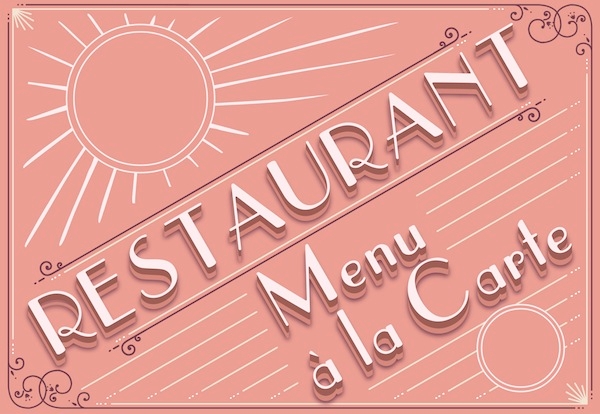When we bought the farmhouse in Tuscany, where I am now, more than 40 years ago, there were only two restaurants within a five-mile radius and neither of them was much good. And being in the unfashionable province of Arezzo, as opposed to the then already popular Chianti region between Siena and Florence, there were few foreigners among their patrons, so they published their menus only in Italian. But 40 years have brought many changes. Many foreigners priced out of the Chianti region have bought houses here, foreign tourism has increased dramatically, and new restaurants have sprung up all over the place. And now it is very hard to find a restaurant that doesn’t publish its menu in English as well as Italian. The amazing thing, however, is how ridiculously bad these English translations of Italian dishes usually are.
In some ways this is rather comforting. We are so used to the idea of world domination by the English language that it’s good to discover that an awful lot of people can’t speak it at all or, at any rate, can’t speak it comprehensibly. You get the feeling that the restaurants don’t even actually care whether their English-speaking customers understand their menus or not. The translations may possibly be there just to give an aura of sophistication and internationalism to a very provincial enterprise. Occasionally I have tentatively offered the owners of restaurants I frequent to edit these translations so as to render them slightly more intelligible, but such offers have always been briskly brushed aside. The owner will assure me that he has a son or daughter or other relation studying English at college and so has no need of any outside help.
The other night I was browsing the menu in a rather good country restaurant near here, one popular with Dutch tourists who holiday in a camp close by (what the Tuscans like to call agriturismo), and was wondering whether to order as my main course stracotto alla chiantigina, which, as you probably know, is a piece of beef cooked over a low heat with Chianti wine for five hours until you can cut it with a fork. But if you happen not to know this, it wouldn’t help to look at the English translation underneath which reads, like the start of an electronic message from one person with a silly nickname to another, ‘Overcooked to the Chianti’. As well as being meaningless, this description could not have made this excellent dish seem more unappetising.
To be fair, most of these translations give some idea of what the dishes consist of, but they nearly all contain misspellings (‘coke’ for ‘cooked’, ‘chiken’ for ‘chicken’, ‘smooked’ for ‘smoked’, ‘rosted’ for ‘roasted’, ‘roket’ for ‘rocket’); or weird, offputting descriptions (‘pig steak’, ‘mortadella pig’, ‘mix grill porc’, ‘hot slices of bread’, ‘leg of chiken hunter’); or simply incorrect translations (lepre means hare not ‘wild rabbit’, salse means sauces, not ‘mustards’). But as often as not, the translator simply throws in the towel and doesn’t try to translate at all. Thus, senape di digione (which means Dijon mustard) is translated into English as ‘senape di Digione’, and Burratina e Pinzimonio (a kind of mozzarella cheese and olive oil dip) as ‘Burratina and Pinzimonio’. Gnudi, which are dumplings made with flour and ricotta cheese, are translated as gnocchi, which are also dumplings, but made with different ingredients.
Well, I won’t bang on; but here we are, English-speaking people perched on the top of every other Tuscan hill, and nobody wishes to take advantage of our superior knowledge of the English language. There was a time when I used to compare the Italians favourably with the French, who would look with contempt on our efforts to speak their language and pretend not to understand what we were saying, however well we were saying it. By contrast, Italians were always very appreciative of our attempts to speak Italian, and would patiently try to grasp what we were driving at, even when we were making no sense at all. But my impression now is that the Italians have become more like the French. I speak Italian tolerably well, but now when I do so, I am greeted with furrowed brows, and looks that suggest I must be talking rubbish. The Italian whom I am addressing will then often break into the most atrocious English, perfectly confident of his proficiency in my native tongue. But I suppose it is a good thing if Italians, who have long had an inferiority complex in relation to the peoples of northern Europe, are feeling a bit more self-confident at last.






Comments